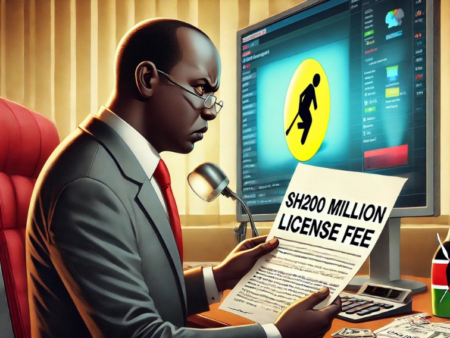Sports gambling in Kenya is a multi-billion-shilling sector, which keeps growing. This is proven by Kenyans betting Sh83.2 billion via M-Pesa within six months before September 2021, a feat worthy of global recognition. Information on the figure was disclosed by M-Pesa’s economic statement for 2021, which has left stakeholders amazed.
The Sh83.2 billion realized in the said period is more than four times the amount of gaming funds handled via M-Pesa. Especially the year, meaning that in a day, as much as Sh422.2 million is earned through the industry. This has been made possible by the many sports betting companies in Kenya.
When compared with the health industry, the Kenya National Bureau of Statistics found that gambling aced it. It revealed that during the first half of 2021, gambling revenues were bigger than the entire output of the health industry.
SportPesa’s re-entry into the gambling industry follows a short hiatus, a result of heavy government enforcement on the industry. It is now evident that its presence has impacted the industry substantially.
Previous Provisions on Gambling
Due to the claim that gambling is associated with social and economic crimes, the government has tried banning gambling. Several top sports betting sites in Kenya have often denied the claims that they are also involved in money laundering.
An expert in the industry noted that the rise in the revenues was confusing since their counts were decreasing. According to the expert, “after the prohibition on advertising and additional taxes, our productivity has been poor”. He also suggested that the production of their rivals may have increased reasonably.
The financial statements stated that there were 347.8 million gaming activities on M-Pesa within 6 months. Such whopping figures represent an increase of 84.7 percent from 188.3 million in the previous year. Safaricom also became the second-highest in generating money on “betting and payments”.
With the increase in the use of mobile payment, mobile devices, and wider Internet coverage, betting has become easier in Kenya. The unemployment of young people has contributed to the growth of gambling. And some experts maintain that it is exponentially growing at the expense of other legitimate interests. The supposed ‘sin’ of gambling now attracts the attention of the Kenyan tax authorities.
Economic Advantages of Gambling Witnessed in Kenya
Recently, the excise duty payable on gambling was increased to 30%, which applies to all gambling activities. Such activities relate to non-charity draws and competitions. Customer winnings are now subject to a 15% excise levy, which must be paid to the tax authorities. This means more revenues to the government through gambling.
In light of reshuffles in the economy, the relevance of agriculture to Kenya’s GDP has reduced in recent times. However, other petty economic activities have become much more significant, such as restaurants, laptops, and mobile repairs.
A 2019 survey by Geopoll and Ipsos showed that 60% of Kenyans of legal gambling age have engaged in betting. The survey further revealed that 47% of gamblers play casually, especially once a month or sometimes none. On the other hand, 10% of gamblers play more than once a day.

